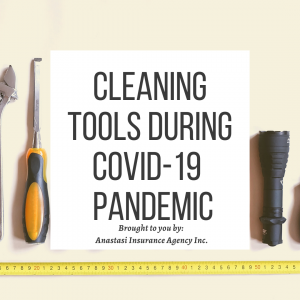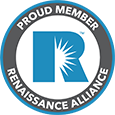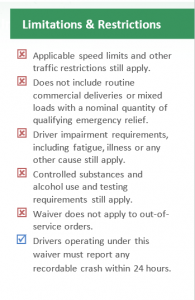The coronavirus disease (COVID-19) pandemic has changed many aspects of the current workplace, and soon, employers should begin planning for what their post-coronavirus office will look like. Previously, social distancing and COVID-19-related best practices hadn’t been a topic on the mind of most employers or employees. By updating office layouts, encouraging new behaviors and expanding remote work options, employers can help prevent the spread of future diseases, and protect the health and safety of employees. As a reminder, please refer to the CDC for the most accurate and up to date information.
Physical Changes to Workplaces
As employers prepare for employees who will be returning to the office, organizations can consider the following best practices for their office space:
- Increasing each employee’s personal space, and ensuring desks are 6 feet or more apart
- Creating walls and barriers between cubicles
- Creating a walk-traffic flow that discourages congestion
- Updating air-filtration systems
- Installing automatic doors
- Installing UV lighting systems
- Installing no-touch soap dispensers and sinks in bathrooms
- Making hand sanitizer and cleaning products readily available
While updating practices to best prevent the spread of illnesses will also require changes in behavior, employers can take a step in the right direction by ensuring their physical office space is aligned with encouraged behaviors of employees.
Behavioral Changes
While every business is different, there are practices many organizations can implement and behaviors they can encourage. Common post-coronavirus adjustments may include:
- Create expectations for handwashing. According to the Centers for Disease Control and Prevention (CDC), one of the best actions to prevent the spread of coronaviruses is washing hands with soap and water for at least 20 seconds. Encourage employees to do so often, and consider creating policies to reinforce this behavior.
- Ban or discourage shaking of hands. While shaking hands is an instinct in many cases, this practice can spread germs, diseases and illnesses at an expedited rate.
- Increase cleaning schedules. According to the CDC, COVID-19 can remain on hard surfaces for up to 12 hours, creating a potential risk of transmission. Review how cleaning schedules can be more frequent and thorough.
- Adjust meeting practices. Encourage limited amounts of participants in meetings, and advise them to spread out and avoid sharing multi-touch devices.
Technology Considerations for Employers
Beyond updating office layouts and encouraging virus-resistant practices, some employers are considering how the use of technology can aid in efforts to prevent the spread of diseases. Some organizations are tracking employees’ distances through cellphones or other devices, and even screening employees and guests for high body temperatures. Employers can also consider installing or expanding the use of hands-free voice assistants, such as Amazon, Google or Apple devices, with the intent of reducing the use of shared technology surfaces used by multiple employees. While not all of these changes will make sense or be feasible for all organizations, employers can consider how updated business practices can encourage social distancing, and reduce the touching of shared surfaces—both during and even after the COVID-19 pandemic.
Expanding Telecommuting Options
According to a survey of U.S. employers by the Computing Technology Industry Association conducted in 2019, more than two-thirds of respondents across a range of different industries and professions reported increased productivity when workers telecommuted full- or part-time. While the feasibility of remote work varies depending on an employee’s job responsibilities, expanding remote work options offers other benefits as well. These additional benefits can include:
- Increased flexibility
- Increased retention
- Reduced greenhouse emissions
- The ability to tap into a broader talent pool
- Fewer opportunities for diseases such as coronaviruses to spread
Notably, by expanding remote opportunities post-coronavirus, employers can reduce the amount of human interaction that takes place at a physical location. Also, by allowing remote work, employees who are sick are less likely to physically attend the office. Best practices for expanding remote work include creating outlined companywide remote practices, rather than leaving remote work approval requests up to the subjective opinion of a manager. As employers consider how they can best create remote work policies, many considerations factor into the equation. For additional resources about how to best use the remote workplace, contact Anastasi Insurance Agency, Inc..
Preparing for Future Pandemics
Even after reopening, health experts warn that businesses should also be prepared for future pandemics. Additional waves of COVID-19 could reemerge in the near future, and employers should create plans that account for partial or full closings of office locations.
Prepare Your Post-coronavirus Office
As employers plan for how to operate post-coronavirus, creating preventive best practices can set up organizations for success. While the easy return-to-work procedure will be to fall back on existing practices, the COVID-19 pandemic allows an opportunity for organizations to consider how creating an updated workplace with virus-resistant practices, as well as expanding remote work opportunities can prepare them for future pandemics.
As employees reenter the job market, post-coronavirus practices will be top of mind. By being proactive and establishing appropriate measures and practices, employers can not only help prevent the spreading of diseases—but put employees at ease, knowing that necessary steps are being taken to ensure the health and safety of those who will be spending time at the office.
As laws and guidelines related to COVID-19 change, employers should consult with legal counsel when updating or changing policies. As you navigate through reopening your office locations, contact Anastasi Insurance Agency, Inc. for additional COVID-19 resources.
 tools and equipment after each use.
tools and equipment after each use.


